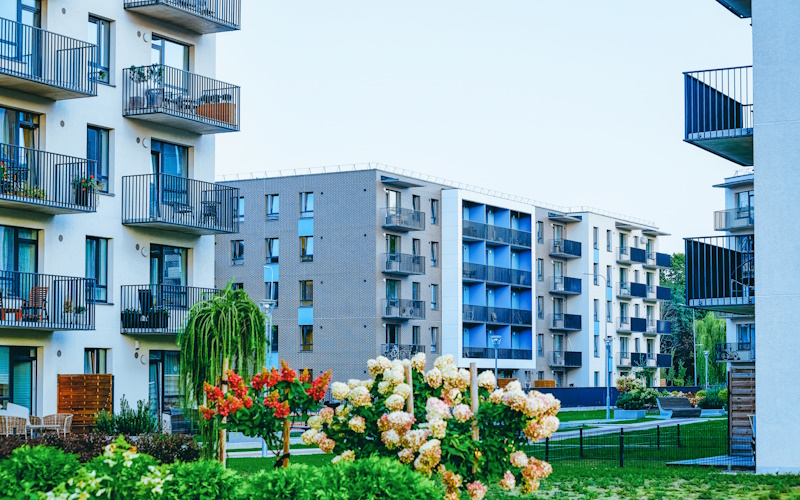Multifamily affordable housing plays a crucial role in providing safe, stable, and affordable homes for individuals and families across diverse socioeconomic backgrounds.
What is a Multifamily Property?
A multifamily property is a type of property which consists of multiple separate housing units within one building or several buildings within one complex. These are typically apartments, condominiums, townhouses, or other structures with more than one living space.



Managing such properties comes with its own set of challenges and responsibilities, but with the right strategies and best practices in place, property managers can ensure the well-being of residents while maintaining the financial viability of the housing development.
In this article, we’ll explore some key best practices for effectively managing multifamily affordable housing.
1. Emphasize Resident Engagement and Community Building
Fostering a sense of community among residents is crucial to managing multifamily affordable housing successfully. Organizing community events, social gatherings, and resident councils helps create a supportive and inclusive environment where residents feel valued and connected. The property manager can organize social events within the community such as potluck dinners, movies, and educational workshops. As a manager, you should know how to build good relationships and communicate effectively with your tenants.
2. Prioritize Maintenance and Property Upkeep
Keeping affordable housing properties in good physical condition is essential for residents’ health, safety, and comfort. Implementing a proactive maintenance schedule and promptly addressing repair requests helps prevent minor issues from escalating into costly repairs. Regular inspections of common areas, building systems, and individual units can identify maintenance needs early on, allowing for timely interventions. Additionally, investing in upgrades and renovations when necessary enhances the overall quality of the property and enhances resident satisfaction.
3. Implement Sustainable Practices
The use of environmentally sustainable practices not only reduces operating costs, but also promotes environmental stewardship and improves resident quality of life. Property managers can minimize the environmental impact of multifamily housing developments with energy-efficient lighting, water-saving fixtures, recycling programs, and green building certifications. By implementing sustainable practices, property managers can lower utility expenses, reduce carbon emissions, and create healthier living environments for residents.
4. Provide Supportive Services
Access to supportive services like childcare, healthcare, education, and employment assistance may be helpful to multifamily residents. Offering on-site or referral-based services in collaboration with local service providers, nonprofits, and government agencies can help residents address their diverse needs. Providing supportive services fosters empowerment and resilience in residents, ultimately contributing to their success.
5. Use Technology to Streamline Tasks
Effective management of multifamily affordable housing can be made easy through use of technology. Consider the use of a property management software which can help you with tracking rent payments, communicating with tenants, scheduling maintenance, etc. Nowadays using technology can prove to be a game changer in the management of multifamily properties. If you use a property management software you can easily automate tasks like rent collection, maintenance requests, etc.
6. Ensure Compliance with Regulatory Requirements
Federal, state, and local agencies have different regulations and compliance standards for multifamily affordable housing. Property managers have to stay on top of the latest laws, regulations, and guidelines governing affordable housing programs, like rent restrictions, occupancy standards, and fair housing laws. By implementing robust policies and procedures, affordable housing programs can minimize risks, avoid penalties, and maintain their integrity. Read this guide to avoid any health code violations while renting out your property.
7. Hire a Property Manager
Hire a property manager if needed. The property manager can take care of many of the day-to-day tasks involved in managing a property, freeing up your time to focus on other things.
Check out here how you can run a successful property management company.
These best practices will help property managers create thriving communities that provide safe, affordable, and dignified housing for people in need. The success of multifamily affordable housing management is about upholding principles of social responsibility, sustainability, and inclusivity while meeting residents’ and broader community needs.




